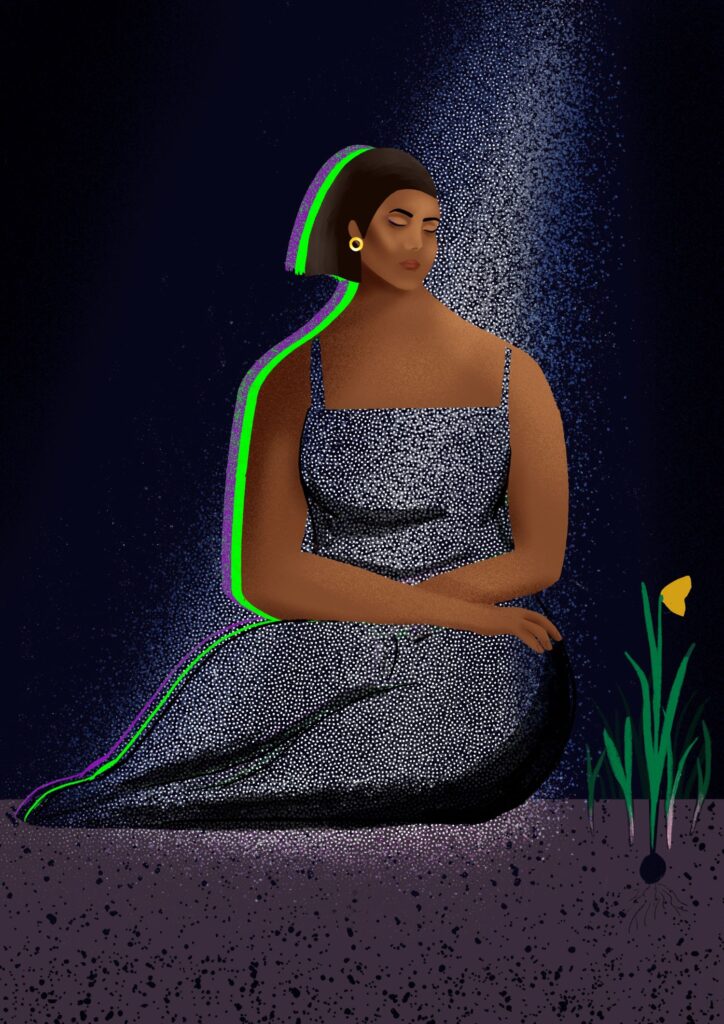A complex and challenging disorder, BPD is one of the most misunderstood and stigmatised conditions in today’s society
Borderline personality disorder (BPD) is characterised by a number of patterns, including emotional difficulties and self-destructive behaviours. Our personalities influence our relationships with other people and with ourselves, therefore, BPD can lead to unstable relationships and a disturbed sense of self.
In the current edition of Irish Country Magazine, Niamh Devereux speaks to Dr Paul Matthews – Chair, CPsychI Personality Disorders Special Interest Group and Consultant General Adult Psychiatrist – and Dr Molly Bredin – Vice-Chair, CPsychI Personality Disorders Special Interest Group and Higher Specialist Trainee in Psychiatry – about BPD. It is the latest topic covered in The Invisible Struggle series which highlights overlooked health conditions that women face on a daily basis.
More women than men are diagnosed, Dr Matthews says, in a ratio of “something like three to one” but he adds that the difference is less marked in the general population than it is in those attending mental health services, which women are more likely to attend.
How BPD affects one’s life is not a one-size-fits-all case. Symptoms may include fear of abandonment, intense mood shifts, impulsivity, problems with anger, recurrent suicidal behaviours or self-injurious behaviours and patterns of unstable and intense relationships.

This is what Dr Bredin advises for families of loved ones who are living with BPD:
Educate yourself on the condition
As with any illness, it is helpful for a family member to educate themselves on the signs and symptoms of the condition so that they can know what to expect for their loved one. In crises it can be useful for loved ones to think less about what they can do and say and more about how they can listen and try to understand what is going on for the person. It can be extremely difficult for a loved one who may not understand why a person feels a certain way.
Don’t take things personally
Those with borderline personality disorder may interpret others’ actions as rejection or abandonment. Try not to react critically or judgementally or by taking things personally. For someone with BPD who is experiencing an ‘emotional storm,’ it may be helpful to talk about it only after the storm has passed and for a relative to ask how they can help if it happens again.
Set boundaries for yourself
Someone with borderline personality disorder may sometimes engage in behaviours which are hurtful to those around them or may expect a lot from their loved ones in order not to feel rejected. It is important that loved ones can set clear boundaries about what can and cannot be expected of them and stick to this as much as possible, in a loving and connected way.
Take care of yourself as you look after them
Do things that nurture the relationship – having fun together, doing things that emphasise the person’s strengths. It isn’t easy and so a good place for a loved one to start is developing the skills to remain calm themselves. Self care is really important for loved ones and this might include seeking professional support.
Make use of available resources
Dr Bredin suggests the following resources to help you and your family gain a better understanding of Borderline Personality Disorder:
- Open Your Mind Before You Open Your Mouth is an excellent series of videos available on the HSE YouTube channel which is very educational about BPD but also helps family members to build skills to manage their emotional responses and provide peer support.
- You can find a list of books, websites, and other educational and self-help resources on the Dialectical Behavioural Therapy section of the HSE website.
- Mind.org.uk is a great resource for general information relating to BPD.
- For podcast fans, The Wrong Kind of Mad is worth listening to. It has contributions from a broad range of people including those with borderline personality disorder.
We are running this series as we want women to know they are not alone in their suffering. Join the conversation on social media using the hashtag #TheInvisibleStruggle
For more information on Borderline Personality Disorder — from dispelling myths to how you can treat the condition — pick up the July|August edition of Irish Country Magazine.








